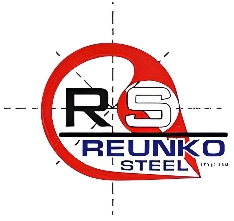We have the answers to all your roof support questions.
Why do miners build roof supports?
Roof supports are essential in all mines to keep workers safe from underground mining hazards. The system provides constant resistance to keep key blocks in place, protecting the hanging roof’s integrity during blasting.
What are roof bolts?
A mining roof bolt is a long anchor bolt used to support rock excavations in tunnels or rock cuts. It transfers load from the unstable exterior of the rock mass to the confined and much stronger interior. Find out more about mining roof bolt basics here.
How are roof bolts installed?
Roof bolts in mining are almost always installed in a pattern. The design of this pattern is determined by the type of excavation and the quality of the rock.
Mining roof bolts function by ‘knitting’ the rock mass together before it moves enough to loosen and fail piece by piece. Mining roof bolts can also be used to hold wire mesh in place. Mining roof bolt bodies are divided into two sections: free and anchoring. Tension force at the bolt head is transmitted to the anchoring section via the free section. The anchoring section is where cement paste adheres a prestressing tendon to the soil layer. Its purpose is to increase the bonding friction between the mining roof bolt and the soil layer and the anchoring pressure of a mining roof bolt.
Why are rock bolts used?
Rock bolting aids in corrosion protection by stabilising rock, preventing it from fracturing or collapsing on workers.
What is the difference between rock bolts and dowels?
Rock dowels are passive reinforcing elements that require some ground displacement to operate. A hole is drilled, and untensioned steel bars are inserted into the hole during rock dowel installation. On the other hand, rock bolts are tensioned once the anchorage is established to actively set up a compressive force into the surrounding rock. This axial force, generated by bolt pre-tensioning, increases shear capacity.
Can I use resin with anchor bolts?
Resin anchor bolts are inserted into pre-drilled holes near the edge of the material. After that, the resin will cure around the fixing, producing the same, if not stronger, pull or load bearing as a traditional fixing. Instead of a direct fix, a section of studding or threaded bar can be inserted into the resin and bolted to fixtures. However, the hole must be prepared carefully to provide maximum strength to the resin anchor bolt.
What is a resin bolt?
The stud, nut, bearing plate washer, and various accessories and modifications that can be configured to meet the specific installation and rock support needs comprise resin bolt assemblies. You can read more about cartridge resin and pumpable system resin bolts here.
How do you fit resin anchor bolts?
It is critical to clean up any debris or dust after drilling the resin anchor bolt hole. The nature of a resin anchor bolt allows it to bond with the concrete or masonry inside the hole. However, if a layer of debris is in the way, it will bond with it and become unstable. Read more about resin anchor bolt installation here.
Are resin anchors strong?
Resin anchors are considered some of the strongest fixing in the mining and construction industry.
Contact Reunko Steel for details
Reunko Steel offers high-quality roofing bolts and can design them to your specifications. You can choose from pumpable resin roofing bolts that quickly stabilise the area around a bolt for immediate and long-term results. Alternatively, we offer simple and quick installation of cartridge resin roofing bolts that can be inserted in any position for immediate bolting.
Our roofing bolts have numerous advantages over traditional rock reinforcement techniques in mining and tunnelling operations. In addition, these resin bolts are manufactured from hot-rolled high-tensile steel deformed bar and are available in standard lengths ranging from 0.6 metres to 3 metres. In addition, our standard lengths are colour coded for simple identification. We can also colour code your load indicator washers.
Get in touch with one of our representatives today to learn more about our roofing bolts.
